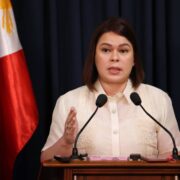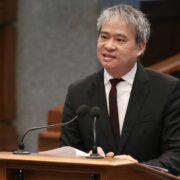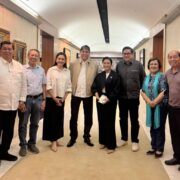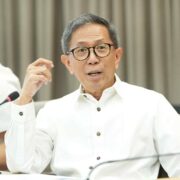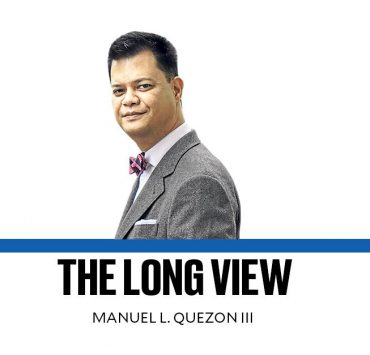Challenging the corrupt: A test of political will

Mahiya naman kayo,” President Ferdinand Marcos Jr. said several times during his State of the Nation Address (Sona) on July 28. Only a few days before, a succession of typhoons and “habagat” had caused untold damage and suffering in many places in the country.
In his speech, the President castigated officials who had profited from flood control projects designed to protect the people from the effects of the new normal in weather conditions, but which have failed to do so either because they are poorly planned, substandard, or nonexistent. He said the public was much too aware of the shady activities by politicians—kickbacks, “initiatives,” errata, so-called standard operating procedures, and funds “for the boys.”
He then directed the Department of Public Works and Highways to submit a list of flood-control projects in the past three years; the Regional Project Monitoring Committee will then examine these projects. Audit and performance reviews will be done on these projects. And then, he said, all found accountable will be charged in court alongside their corrupt contractors.
Mr. Marcos touched on numerous issues during his Sona, but this one hit close to home. It demonstrated that corruption has a very real and tangible effect on the everyday lives of Filipinos, and has the potential to cause not only disruption but devastation and death. In using the flood projects as a springboard to talk about government corruption, the President had an opportunity to demonstrate leadership and to reaffirm the administration’s commitment to addressing this societal plague.
Outside of the Sona, we note that the Marcos administration has scored some wins in the transparency drive. A key milestone was our removal from the Financial Action Task Force’s gray list, showing that our anti-money laundering efforts are yielding results. Another major reform is the New Government Procurement Act, signed in July 2024, which updates the outdated Republic Act No. 9184, also known as the Government Procurement Reform Act, by requiring full public disclosure of procurement documents across all stages and agencies. It also supports the administration’s digital agenda through enhancements to Philippine Government Electronic Procurement System and the creation of an e-marketplace similar to commercial e-commerce platforms.
Two years ago, the President issued Executive Order No. 31 to institutionalize the Philippine Open Government Partnership and to embed open government values in government policies and programs, promote transparency, accountability, citizen participation, and harness technology and innovation.
—————-
A study conducted by the Stratbase Institute showed corruption is a persistent problem, with the impeachment of Vice President Sara Duterte—notorious for the use of “confidential funds”—drawing significant public attention, even as the Supreme Court has struck down this year’s complaint as unconstitutional. The study emphasized that the success of reforms will ultimately depend on effective implementation and supporting mechanisms.
Of course, corruption continues. Aside from robbing the people of the services that are due them, corruption also undermines investor confidence and economic growth. Strengthening transparency and accountability, reducing regulatory complexity, and ensuring policy stability are essential for sustained growth. The effective enforcement of reforms enhanced public sector capacity, and stronger anti-corruption measures will be critical to improving governance, attracting investment, and fostering long-term economic resilience.
Indeed, governance cannot be a concern that is divorced from economic growth. It is an essential part of it. Investors want a clean and transparent government, where economic policies are not subject to whim, and where costs are clear and predictable.
The gains the country has achieved in terms of good governance reforms should be maintained and strengthened. These reforms, ranging from increased transparency through Freedom of Information and digitalization to more inclusive policymaking, have laid the groundwork for more responsive, accountable, and citizen-focused governance.
Moving forward, the Marcos Jr. administration must sustain the momentum it has created. It must enforce laws consistently, help institutions build their capacity for governance, and firmly commit to transparency at all levels of government. Strengthening public trust also means preventing the misuse of power and ensuring that anti-corruption efforts are implemented fairly and effectively. Ultimately, good governance should enable the creation of a system that genuinely serves and empowers the people while helping to address economic challenges.
We heard strong words from the President on the fight against corruption. The next three years will be a critical test—not just of his resolve, but of whether those words can translate into meaningful reforms. Turning these avowed objectives into tangible results will require not only political will, but active participation from all sectors of society.
—————-
Dindo Manhit is the founder and CEO of Stratbase Group.



